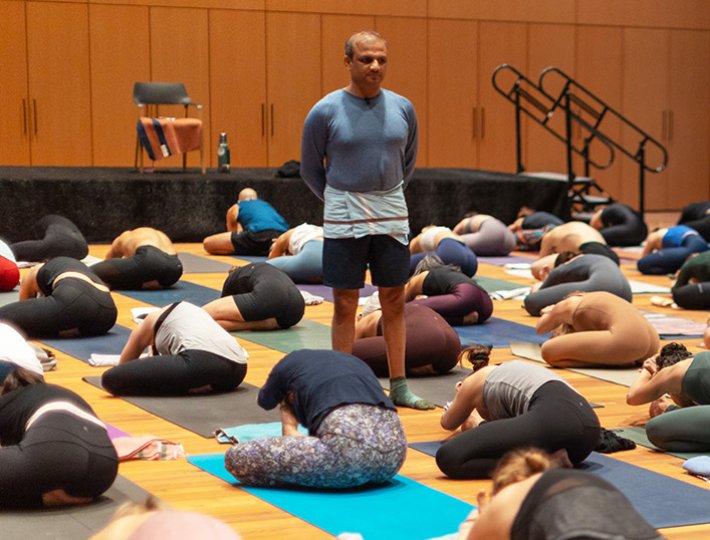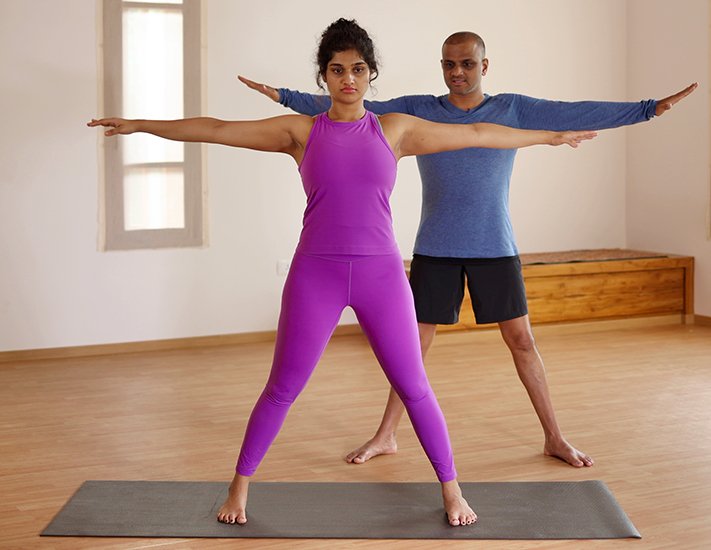If you’re tired all the time you’re not alone. The Centers for Disease Control and Prevention have gone so far as to call Americans’ lack of sleep a “public health epidemic.” Chronic fatigue is also related to a variety of medical conditions including autoimmune disease, thyroid disorders, depression, and anemia. Combine any of these possibilities with long hours at work and it’s no surprise you’re reaching for a third cup of coffee by 3 o’clock. But there are other natural ways to boost energy that will provide a more sustainable lift and won’t compromise your ability to wind down in the evening so you can finally get the rest you need. Read on for a few research-supported strategies to stay energized all day long.
Balance your carb consumption. That afternoon slump may happen because you’re bored at work, but more than likely it has a lot to do with what you just ate for lunch. Your body and brain need food for fuel, but when a lot of the calories you consume come from carbohydrates—such as the bread used in sandwiches or a hearty bowl of pasta—you may start to feel sleepy about an hour after eating. Carbohydrates are absorbed into your blood stream almost immediately after eating. Right after a carb-heavy meal your blood sugar will experience a big surge then, when all the carbs are used up, your blood sugar will plummet, bringing on that feeling of fatigue. However, calories that come from fiber, fat, and protein take longer to release. For even all-day energy, eat a mix of nutrients at each meal and snack, including plenty of fiber-rich veggies and fruits, lean proteins such as chicken or beans, and some healthy fat, such as that found in avocados and olive oil.
Sniff some mint. Have you ever noticed that spas tend to smell of flowers such as lavender and ylang ylang? Studies show that these scents increase calmness, which is right for that setting. If you were to look for an essential oil that had the opposite effect—one that made you more energized and alert—choose peppermint. This distinct odor has the opposite effect of soothing essential oils, although it’s still a pleasant scent. Peppermint can even enhance your memory, according to a study in the International Journal of Neuroscience.
Take in more B12. Even if you eat a balanced diet, you may be deficient in important nutrients. If you’re feeling sluggish, try increasing your intake of vitamin B12. This vitamin is naturally found in animal-derived foods like meat, fish, poultry, and dairy, which explains why many vegetarians and vegans may not get enough through diet alone. (Vitamin B12 is also important for anemia prevention.) Vitamin B12 supplements can be found in the vitamin aisle of most grocery stores; you can take this vitamin on its own or in a blend of other B vitamins.
Go to yoga or take a walk. It may seem like being active will only make you feel more tired and it can be true—going to an intense bootcamp class may make you want to take a nap. But engaging in low or moderate activity—such as a short walk or a yoga session—can boost energy levels, according to an article from the journal Psychotherapy and Psychosomatics. This sort of exercise is enough to increase your circulation—and with it the blood and oxygen flow to your body and brain—without actually tiring you out. The next time you feel fatigued but you really need to be awake, try it out: Go on a brisk 10- or 20-minute walk and see how you feel after. Chances are you’ll be much more awake than when you left. For a quick yoga pick-me-up try some repetitions of Sun Salutation A, demonstrated in the video below.
Relax to rev up. If you’re feeling stressed or anxious, all of that mental churning can zap your energy levels—it’s the equivalent to your mind running a marathon. Shift your thoughts to more of a leisurely stroll and you’ll feel a whole lot less drained. Easier said than done? Try meditation. Simply focusing on your breath can help you relax and, according to a study in the Annals of the New York Academy of Sciences, it can also increase your alertness. To start: Close your eyes and notice your inhales and exhales for a couple of minutes. Let your thoughts drift in and out, trying not to focus on any one.
Breathe some fresh air. When the couch is calling, get back to nature. A study from the Journal of Environmental Psychology found that being in the outdoors is a simple way to increase feelings of vitality. In the study, people who spent just 20 minutes outside felt more awake than those who spent the same amount of time inside. Being active, such as walking or gardening, can help increase these feelings. No chance to escape four walls? Simply imagining a natural setting can help, according to the researchers.
Set a routine bedtime. To put the power in your power suit, you must give your body and brain adequate time to rest and recharge at night. If you often hit snooze in the morning or wake up feeling like you haven’t rested enough, move your bedtime forward to ensure you get at least 7 or 8 hours of sleep each night. (Have a hard time shutting off your screen time? Set an alarm on your phone to remind you it’s time to unwind.) A recent study in the Journal of Primary Health Care found that going to bed earlier and practicing better sleep hygiene, such as limiting screen time before bed, improved sleep for 73 percent of participants.
Related: The Surprising Reasons You’re Not Sleeping Well
Keep a water bottle handy. If you’re feeling fatigued, keeping H2O on tap will help refill your energy stores. Even mild dehydration can make you feel tired and decrease your ability to concentrate, according to a study in The Journal of Nutrition. Experiencing headaches or feeling lethargic can signal that you need more fluids. Feeling thirsty can also be a sign that you’re already dehydrated. Aim to drink around eight 8-ounce glasses (nope, this is not a myth!) or four 16-ounce bottles of water each day. If you exercise regularly, you may need to drink more.











Comments (0)